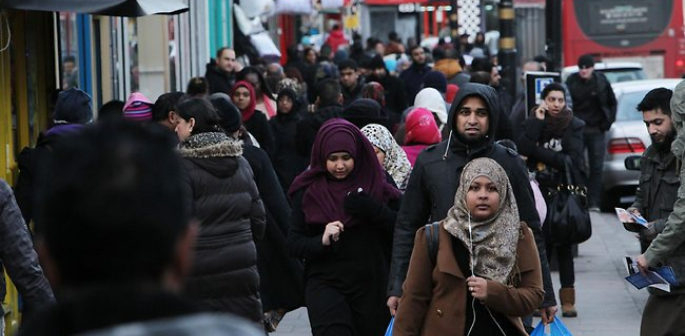the raised mortality rate remains "alarming".
Data has shown that the number of Coronavirus-related deaths among South Asian people is still a cause for concern during the second wave.
During the first wave, ethnic minorities experienced higher death rates than white people.
It was found that the gap closed for black people.
However, researchers from the ONS, University of Oxford, London School of Hygiene and Tropical Medicine, and the University of Leicester have found out that ethnic minorities were still disproportionately affected by Covid-19.
But for South Asians, especially Bangladeshis and Pakistanis, they experienced three times the risk.
As a result, the raised mortality rate remains “alarming”.
The research used official data on 28.9 million people aged between 30 and 100 living in private households in England between the first wave (from January until the end of August 2020) and the second wave (from September to the end of December 2020).
The risk of dying from Covid-19 for South Asian people is five-times greater compared to white British people.
It ranges from a 4.8-fold increase in the risk of dying for Pakistani men to 1.6 times higher for Indian women.
The results were presented in a preprint, and have not been published yet.
Why have some ethnic groups been hit harder by Covid-19?
There are several factors as to why some ethnic groups have been hit harder by Covid-19 than others:
- Being more likely to work in front-line or other high-risk jobs
- Living in overcrowded or multi-generational housing
- Living in more urban or built-up areas
- Deprivation leading to poorer health
- Biological or genetic health risks
- Wider discrimination or unequal treatment in healthcare
According to the report, “geographical factors explained a large proportion of the differences in Covid-19 mortality” during the first wave.
In other words, people from ethnic minority groups were more likely to live in areas harder hit by the virus.
But this was not the case in the second wave of coronavirus.
However, for those from South Asian communities, especially for people from Bangladeshi and Pakistani backgrounds, the risk of dying of Covid-19 remained “substantially higher”.
The study also reported that:
“Focusing on treating underlying conditions, although important, may not be enough in reducing the inequalities in Covid-19 mortality.
“A focused public health policy as well as community mobilisation and a participatory public health campaign involving community leaders may help reduce the existing and widening inequalities.”
The study also reported the vital importance of understanding the evolving nature of Covid-19, to help shape the public health response to the coronavirus pandemic, especially in the context of emerging variants in some countries.
Besides, the long-term consequences of Covid-19 may be severe, especially amongst people from the South Asian communities.






























































